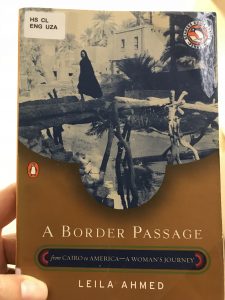March is Women’s History Month in many parts of the world. To help celebrate the recognition of women, I will only be featuring female authors during the month of March.
I was late in getting my books sorted this week, so I am featuring two books for the weeks of March 5th and March 12th. Please read on to learn more about Jamaica Kincaid and Celeste Ng.

At the Bottom of the River
“Reading Jamaica Kincaid is to plunge, gently, into another way of seeing both the physical world and its elusive inhabitants. Her voice is, by turns, naively whimsical and biblical in its assurance, and it speaks of what is partially remembered partly divined. The memories often concern a childhood in the Caribbean–family, manners, and landscape–as distilled and transformed by Kincaid’s special style and vision.
Kincaid leads her readers to consider, as if for the first time, the powerful ties between mother and child; the beauty and destructiveness of nature; the gulf between the masculine and the feminine; the significance of familiar things–a house, a cup, a pen. Transfiguring our human form and our surroundings–shedding skin, darkening an afternoon, painting a perfect place–these stories tell us something we didn’t know, in a way we hadn’t expected.”
(from Goodreads)
“These stories read like poetry. The visual imagery is stunning and helps to magnify her island life. I have to admit that there were some stories that were confusing; I found myself re-reading some parts. Overall, a remarkable collection of stories dealing with female relationships, especially mother/daughter ones.”
(from my own Goodreads review)
About the Author
“Jamaica Kincaid, original name Elaine Potter Richardson, (born May 25, 1949, St. John’s, Antigua), Caribbean American writer whose essays, stories, and novels are evocative, portrayals of family relationships and her native Antigua.
Kincaid settled in New York City when she left Antigua at age 16. She first worked as an au pair in Manhattan. She later won a photography scholarship in New Hampshire but returned to New York within two years. In 1973 she took the name Jamaica Kincaid (partly because she wished the anonymity for her writing), and the following year she began regularly submitting articles to The New Yorker magazine, where she became a staff writer in 1976. Kincaid’s writings for the magazine often chronicled Caribbean culture. Her essays and stories were subsequently published in other magazines as well.
In 1983 Kincaid’s first book, At the Bottom of the River, a collection of short stories and reflections, was published. Setting a pattern for her later work, it mixed lyricism and anger. Annie John (1984) and Lucy (1990) were novels but were autobiographical in nature, as were most of Kincaid’s subsequent works, with an emphasis on mother-daughter relationships. A Small Place (1988), a three-part essay, continued her depiction of Antigua and her rage at its despoliation. Kincaid’s treatment of the themes of family relationships, personhood, and the taint of colonialism reached a fierce pitch in The Autobiography of My Mother (1996) and My Brother (1997), an account of the death from AIDS of Kincaid’s younger brother Devon Drew. Her “Talk of the Town” columns for The New Yorker were collected in Talk Stories (2001), and in 2005 she published Among Flowers: A Walk in the Himalaya, an account of a plant-collecting trip she took in the foothills of the Himalayas. The novel See Now Then (2013) chronicles the late-life dissolution of a marriage by way of the jilted wife’s acerbic ruminations.”
(from Encyclopaedia Britannica)
Everything I Never Told You
“Lydia is dead. But they don’t know this yet.
So begins this exquisite novel about a Chinese American family living in 1970s small-town Ohio. Lydia is the favorite child of Marilyn and James Lee, and her parents are determined that she will fulfill the dreams they were unable to pursue. But when Lydia’s body is found in the local lake, the delicate balancing act that has been keeping the Lee family together is destroyed, tumbling them into chaos.
A profoundly moving story of family, secrets, and longing, Everything I Never Told You is both a gripping page-turner and a sensitive family portrait, uncovering the ways in which mothers and daughters, fathers and sons, and husbands and wives struggle, all their lives, to understand one another.”
(from Goodreads)
About the Author
“Celeste Ng is the author of the novel Everything I Never Told You, which was a New York Times bestseller, a New York Times Notable Book of 2014, Amazon’s #1 Best Book of 2014, and named a best book of the year by over a dozen publications. Everything I Never Told You was also the winner of the Massachusetts Book Award, the Asian/Pacific American Award for Literature, the ALA’s Alex Award, and the Medici Book Club Prize, and was a finalist for numerous awards, including the Ohioana Award, the John Creasey (New Blood) Dagger Award, and the VCU Cabell First Novelist Award.
Celeste grew up in Pittsburgh, Pennsylvania, and Shaker Heights, Ohio, in a family of scientists. Celeste attended Harvard University and earned an MFA from the University of Michigan (now the Helen Zell Writers’ Program at the University of Michigan), where she won the Hopwood Award. Her fiction and essays have appeared in One Story, TriQuarterly, Bellevue Literary Review, the Kenyon Review Online, and elsewhere, and she is a recipient of the Pushcart Prize.
Currently, she lives in Cambridge, Massachusetts. Her second novel, Little Fires Everywhere, will be published by Penguin Press in fall 2017.”
(from Goodreads)

 A Border Passage: from Cairo to America — A Woman’s Journey
A Border Passage: from Cairo to America — A Woman’s Journey


